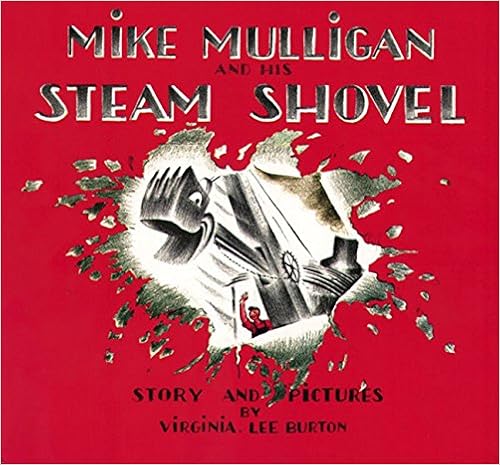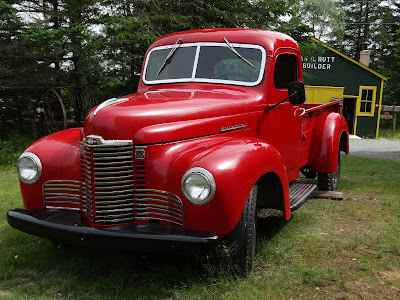One of our adventures when Ilse, Al's Mom, was visiting us was to Memory Lane, a living village museum set up to show the period set in the 1940s and 1950s in rural Nova Scotia. It was very interesting how people from that era lived a simple life. The family garden out back, the one room school house, the General store, the sheep in the yard, the ice box, the wringer washer, and the workshops all showed how life was spent.
 |
| Ilse in an old 1928 Ford Model A |
 |
| Filling up at the Esso station |
 |
| The General Store |
 |
| The one room school house |
 |
| From the teacher's perspective |
 |
| An old phone |
 |
| Every community had at least one church |
 |
| A sheep in every yard makes a great lawn mower |
 |
| And provides a source of fleece. |
 |
| The kitchen garden |
 |
| Cats on the prowl |
 |
Ice from the ice shed.
Before mechanical refrigeration, food was preserved using lake ice,
cut by hand and stored in the ice house between layers of sawdust.
Blocks were moved to the kitchen icebox using big, scissor-like tongs |
 |
| The old telephone |
 |
| The latest model -- a wringer washer |
 |
| The phone switchboard for the community. |
 |
| Sewing corner |
 |
| Electric ice box or refrigerator |
 |
| The stove and oven; such modern conveniences! |
 |
| The pantry was always full. |
 |
| Cleaning up after a healthy meal |
 |
| Soaps and cleaning supplies |
 |
The sitting room with a radio -- such entertainment.
Since 1931 residents would be sitting around the radio
on Saturday nights listening to Saturday night NHL
broadcasts on the CNR radio network. |
 |
Most homes had an organ or a piano for entertainment.
Note an old phonograph on the left side of organ. |
 |
| A simple bedroom |
 |
| Another bedroom |
 |
A selection of chamber pots in the closet.
Better in the closet than having to go out to the outhouse
especially on a cold and stormy winter night |
 |
| A restored 1948 International Pickup |
In the Wood and Metal workshop there were a variety of tools on display.
There were a number of buildings open to the public to see the various activities happening in the area during this time period such as Assay office, shingle mill, boat shop, fisherman's storehouse, clam factory, the Cookhouse, the Village garage, Prospector's cabin and many more.














 |
At the General Store on site, I purchased "Mike Mulligan and his Steam Shovel" for our grandson, Henry. We had a copy at home when our children were young and it was one of our favourites. The book was first published in 1939. Mike and his trusty steam shovel, Mary Anne, dig deep canals for boats to travel through, cut mountain passes for trains, and hollow out cellars for city skyscrapers - the very symbol of industrial America. But with progress came new machines, and soon the inseparable duo are out of work. Mike believes that Mary Anne can dig as much in a day as one hundred men can dig in a week and the two have one last chance to prove it and save Mary Anne from the scrap heap. What happens next in the small town of Popperville is a testament to their friendship and to old-fashioned hard work and ingenuity.
With our fast-paced life, it was nice to stroll down Memory Lane, even though it is before my time. The communities in that era were filled with hard-working, fun-loving people who dreamed of a better life but made the most of the life that they had.
|
We have been to many pioneer villages but this was a first for the 1940s & 50s era. A nice change of pace.















































No comments:
Post a Comment